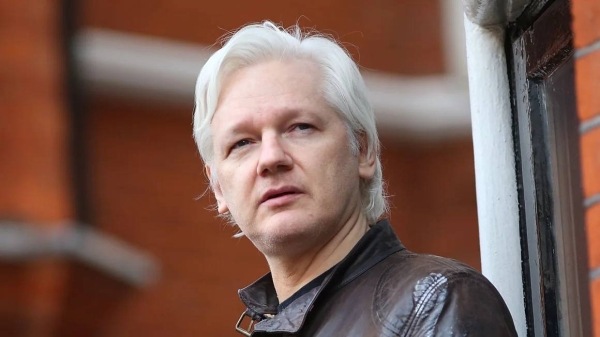The High Court in London has ruled that WikiLeaks founder Julian Assange has the right to appeal in a final challenge against his extradition to the United States. In a recent ruling, Assange’s legal team argued against the assurances given by US prosecutors regarding his rights under the US First Amendment. They claimed that Assange could be discriminated against due to his nationality as an Australian-born foreign national. The judges agreed with Assange’s legal team, granting him permission for a full appeal on the points regarding freedom of speech and nationality. A date for the full appeal has not yet been set.
Assange is wanted by US authorities on espionage charges relating to WikiLeaks’ publication of classified documents and diplomatic cables in 2010 and 2011. If convicted, he could spend the rest of his life behind bars. Assange has been facing legal battles for years and has been living under restricted conditions. In May 2019, he was sentenced to 50 weeks in prison for breaching his bail conditions in 2012. The court delayed its decision on his extradition in March as it sought assurances from the US that Assange would not face the death penalty.
It has been 12 years since Assange has lived freely, spending the past five years in London’s high-security Belmarsh prison. Prior to that, he spent nearly seven years at the Ecuadorian embassy in London trying to avoid arrest. Assange maintains that his extradition is politically motivated, and he continues to fight against being sent to the United States. The recent ruling giving him permission to appeal is a small victory in his ongoing legal battle.
Assange’s case raises important issues related to freedom of speech and national identity. The ruling allowing him to appeal on these grounds acknowledges the complexities of his situation as an Australian citizen facing extradition to the US. The judges’ decision to grant him permission for a full appeal indicates that they recognize the significance of the arguments made by Assange’s legal team. The outcome of the appeal could have far-reaching implications for Assange’s case and the broader debate on press freedom.
The legal battle surrounding Assange’s extradition has been ongoing for years, with supporters and critics closely following the developments. The latest ruling granting him the right to appeal is a significant step in the process, providing hope for Assange and his legal team. As the case continues to unfold, Assange’s fate remains uncertain, with the potential for further legal challenges and appeals. The international community will be watching closely to see how the situation develops and what impact it could have on press freedom and human rights.











